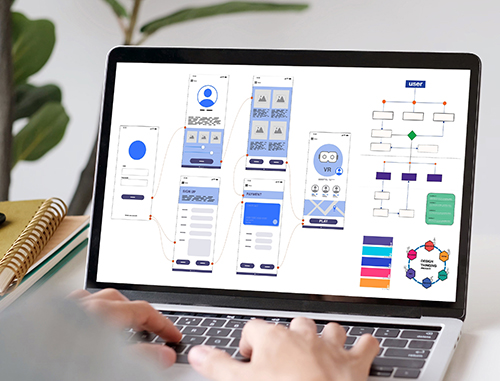Why Empathy is Important in Healthcare Practice
Posted on
In the realm of healthcare, one word stands out as a beacon of compassion and understanding – empathy. As healthcare providers, physicians, nurses, and other medical professionals, understanding and embracing empathy is not just a desirable trait but a fundamental aspect of delivering patient-centered care.
In this blog post, we will delve into the nuances of clinical empathy, explore its significance in physician communication, distinguish between empathy and sympathy, unravel the myriad benefits it brings to healthcare, and provide practical tips for healthcare professionals to foster a culture of empathy in their practice.
Empathy in Healthcare: The Core of Patient Connection
At the heart of patient-centered care lies clinical empathy, a skill that goes beyond medical knowledge and technical expertise. Clinical empathy involves understanding and sharing the feelings of patients, acknowledging their emotions, and providing support beyond the clinical diagnosis. It is the ability to step into the shoes of the patient, appreciating their unique experiences and challenges.

Healthcare providers who embody clinical empathy create a therapeutic alliance with their patients, fostering trust, and promoting a sense of emotional well-being. It’s not merely about treating ailments but about acknowledging the humanity of the person seeking care.
Empathize with Patients:Improving Medical Communication
Effective physician communication is a cornerstone of quality healthcare, and empathy plays a pivotal role in establishing a strong doctor-patient relationship. When physicians empathize with their patients, they create an environment where individuals feel heard, respected, and understood.
This form of communication goes beyond the clinical jargon, taking into account the patient’s fears, concerns, and emotional state. Whether delivering good news or discussing challenging diagnosis, a physician’s ability to empathize can significantly impact a patient’s experience and outcomes.

Practice Builders, a healthcare marketing and consulting firm, recognizes the importance of fostering empathetic communication within medical practices. Their services extend beyond marketing strategies, encompassing comprehensive training programs that empower healthcare professionals with the skills to communicate with empathy effectively.
Empathy in Healthcare vs. Sympathy: Understanding the Differences
While empathy and sympathy are often used interchangeably, they carry distinct meanings, especially in the healthcare context. Empathy involves understanding and sharing the feelings of another person, while sympathy is feeling sorrow or pity for someone’s situation. In healthcare, empathy involves actively listening to patients, trying to understand their emotions, and providing support, whereas sympathy may inadvertently create a sense of distance.
Empathy allows healthcare providers to connect with patients on a deeper level, fostering trust and collaboration in the journey towards better health outcomes. It is not about feeling sorry for patients but rather about standing alongside them, offering support and understanding.

Benefits of Empathy Care: Transforming Patient Experiences
The integration of empathy in healthcare practices offers a myriad of advantages for both patients and healthcare providers. A key benefit lies in elevating the patient experience, as individuals who feel empathized are more likely to adhere to treatment plans, share vital information, and actively engage in their healthcare journey.
Moreover, clinical empathy contributes to improved patient outcomes. By understanding the emotional aspects of an illness or treatment, healthcare providers can tailor their approach to meet the unique needs of each patient. This personalized care not only improves medical outcomes but also enhances overall patient satisfaction.
Practice Builders understands the positive impact of empathy on patient satisfaction and outcomes. Their patient engagement strategies incorporate the principles of clinical empathy, ensuring that medical practices create an environment where patients feel cared for on a holistic level.

Empathy in Nursing: Useful Tips for treating Patients
Empathy is a skill that can be cultivated and refined. Here are some practical tips for healthcare professionals to integrate clinical empathy into their practice:
- Active Listening: Patients often come to medical appointments with a range of concerns, from physical symptoms to emotional distress. By actively listening, healthcare professionals create a space where patients feel heard and valued. This can have a profound impact on the patient-provider relationship, fostering trust and collaboration.
- Non-Verbal Cues: Communication extends far beyond words, and in the healthcare setting, paying attention to non-verbal cues is paramount. Body language and facial expressions often convey emotions that patients may not feel comfortable expressing verbally. As healthcare providers, the ability to decode these cues enhances our understanding of the patient’s emotional state.
- Validate Emotions: In the realm of healthcare, emotions run deep. Patients may experience fear, frustration, sadness, or a myriad of other emotions associated with their health journey. Validating these emotions is a crucial step in building trust and rapport.
Acknowledging a patient’s feelings demonstrates empathy and fosters a sense of understanding. When patients feel validated, they are more likely to engage in open communication, share critical information, and actively participate in their care.
- Use Plain Language: One common barrier to effective communication in healthcare is the use of medical jargon. Patients may feel overwhelmed and confused when faced with complex terminology. To bridge this gap, healthcare professionals should strive to explain diagnosis and treatment plans in simple, understandable language.
- Show Genuine Interest: Healthcare is not just about treating illnesses; it’s about caring for individuals. Showing genuine interest in patients as unique individuals goes a long way in establishing a strong doctor-patient relationship. Beyond the immediate medical issues, healthcare providers can inquire about patients’ lives, hobbies, and concerns.
Practice Builders’ training programs incorporate these empathy-building techniques, ensuring that healthcare providers can create a compassionate and patient-centered practice.
Conclusion
In today’s world, empathy in healthcare stands as a guiding light, illuminating the path to patient-centered excellence. By understanding the nuances of clinical empathy, appreciating its role in physician communication, distinguishing it from sympathy, and reaping the benefits it brings, healthcare professionals can elevate their practice to new heights.
Practice Builders, with its commitment to excellence in healthcare, recognizes the transformative power of empathy. Their comprehensive services not only cater to the marketing needs of medical practices but also prioritize the cultivation of a culture where empathy is at the core of patient care. As healthcare providers strive for excellence, integrating empathy into their practice becomes not just a skill but a prescription for holistic and compassionate healthcare.

 What Are the First Steps When Planning a New Websi..
What Are the First Steps When Planning a New Websi.. SEO Strategies to Rank Your Dental Practice
SEO Strategies to Rank Your Dental Practice How AI is Driving Patient Engagement and Revolutio..
How AI is Driving Patient Engagement and Revolutio..